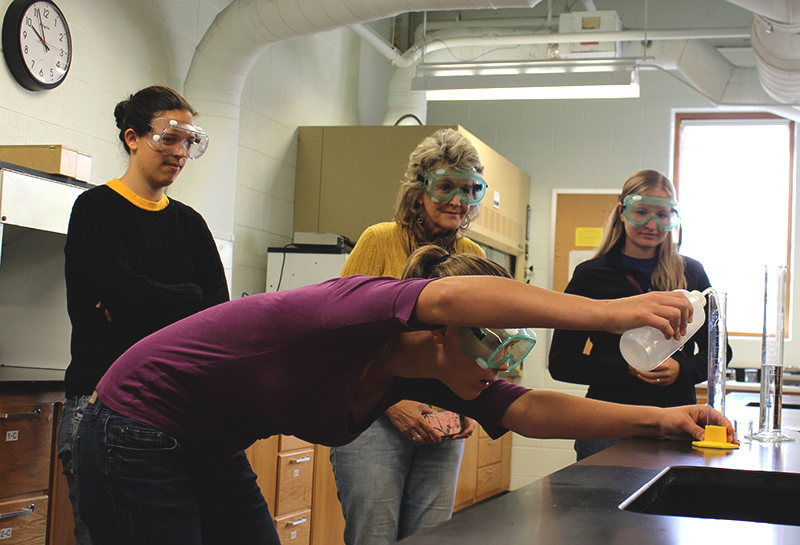In the past decade, science labs and lecture halls have increasingly filled with women who are interested in the discipline.
But many of these women run the risk of feeling like an outsider—like they don’t belong in the sciences because they aren’t good enough.Why would they feel this way? The answer is simple: because they are women. These particular feelings are called impostor syndrome, and here on Goshen College’s campus, we have a group of women determined to prevent it.
“Having that sense of community there and knowing there are other women around can be nice to have,” Maria Jantz, senior physics major, said as she described the purpose of this group.
Although there is no official structure to this group and it is not an official club, the group began two years ago under Jantz and fellow senior Anna van der Zwagg.
Jantz explained that they felt like “they needed to communicate with other women in science in some way.”
After talking with a few professors, including Jody Saylor, they began organizing meetings semi-regularly with female scientists to discuss what it’s like to be a woman working in the sciences.
Sam Weaver, a senior biochemistry major, organized the Women in Science event on GC’s campus this past Saturday.
Jantz, Kara Hostetter, a junior, and Ellie Schertz, a senior, led activities between two speakers, Dr. Sally Hunsberger, a 1986 graduate, and Rebecca Friesen, a 2009 graduate.
Hunsberger, a bio statistician at the National Institute of Health in Washington, D.C., discussed her journey to her current job working with allergy and infectious disease analysis.
Friesen, a Ph.D student at Northwestern University studying mechanical engineering, discussed her doctorate lab research with touch screen texture and technology.
According to junior Leah Amstutz, both speakers emphasized “how their career paths have changed from what they thought they would be and how flexible things can be in your path to find what you’re passionate about.”
Amstutz also says she really enjoyed hearing the rephrasing of the question “What are you going to be when you grow up?” to “What are you going to be first?”
Said Jantz, “It was also reassuring to hear that you don’t have to stay in one career forever and it’s ok to be vulnerable and ask questions, because that’s how you learn.”
Weaver described this event, which is a large part of her senior project, as an event that aimed to “provide a space where young women who are interested in science can see female role models that are real people with success and see that, as women, you can succeed in science.”
Anyone is welcome to join Women in Science, and for more information email Sam Weaver at seweaver@goshen.edu or Maria Jantz at mkjantz@goshen.edu.



